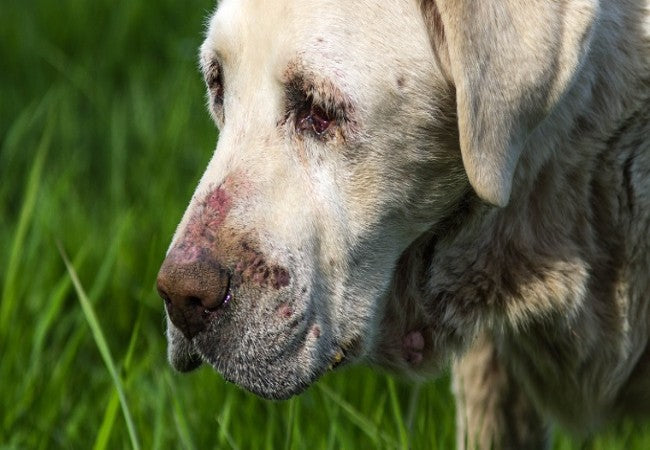Basal Cell Tumors in Dogs: Vet-Approved Causes, Symptoms & Treatments (2025 Guide) 🐶💊

In this article
Basal Cell Tumors in Dogs: Vet-Approved Causes, Symptoms & Treatments (2025 Guide) 🐶💊
By Dr. Duncan Houston BVSc
As a veterinarian, I often encounter cases of basal cell tumors in dogs, which are common skin growths that are usually benign but can sometimes be serious. Understanding this condition is crucial for early detection and effective treatment. This comprehensive guide aims to educate pet owners on the causes, symptoms, and treatment options for basal cell tumors in dogs.
🧬 What Are Basal Cell Tumors?
Basal cell tumors are growths that develop from the basal cells in the outermost layer of the skin, the epidermis. These tumors are typically benign but can occasionally become malignant, known as basal cell carcinomas. They are most commonly found in middle-aged to older dogs and can appear anywhere on the body, though they are frequently located on the head, neck, or shoulders.
🐞 Causes and Risk Factors
The exact cause of basal cell tumors in dogs is unknown. However, several factors may contribute to their development:
- 🧬 Genetics: Certain breeds are more predisposed, including Wirehaired Pointing Griffons, Kerry Blue Terriers, Cocker Spaniels, and Poodles.
- 🧓 Age: Middle-aged to older dogs are more commonly affected.
- 🌞 Sun exposure: Although not definitively proven, prolonged exposure to ultraviolet light may play a role.
⚠️ Symptoms of Basal Cell Tumors
Basal cell tumors can present with various signs, including:
- 🔵 Appearance: Firm, raised, dome-shaped masses that may be hairless or ulcerated.
- 📏 Size: Tumors can range from less than 1 cm to over 10 cm in diameter.
- 🩸 Ulceration: Some tumors may ulcerate and bleed.
- 😣 Discomfort: Tumors may cause itching or discomfort, leading to scratching or licking.
If you notice any unusual lumps or changes in your dog's skin, consult your veterinarian promptly.
🩺 Diagnosing Basal Cell Tumors
Diagnosis involves a combination of clinical evaluation and diagnostic tests:
- 🔬 Fine-needle aspiration (FNA): Collecting cells from the tumor for microscopic examination.
- 🧫 Biopsy: Surgical removal of a tissue sample for histopathological analysis.
- 🖼️ Imaging: X-rays or ultrasounds may be used if malignancy is suspected.
These tests help determine the nature of the tumor and guide treatment decisions.
💊 Treatment Options
Treatment strategies depend on the tumor's size, location, and whether it is benign or malignant:
- 🔪 Surgical removal: The most common and effective treatment, especially for benign tumors.
- ❄️ Cryosurgery: Freezing the tumor with liquid nitrogen, suitable for small tumors.
- 🔬 Radiation therapy: May be considered for malignant tumors or when surgery isn't feasible.
- 💊 Chemotherapy: Rarely used but may be considered in cases of basal cell carcinoma.
Postoperative care includes monitoring the surgical site, preventing the dog from licking or scratching the area, and administering prescribed medications.
🛡️ Preventing Basal Cell Tumors
While prevention is challenging due to unknown exact causes, the following measures may help:
- 🧼 Regular grooming: Helps detect skin changes early.
- 🏥 Routine veterinary check-ups: Early detection and management of health issues.
- 🌞 Sun protection: Limiting sun exposure, especially for light-colored or short-haired dogs.
📱 Support and Resources
If you suspect your dog has a basal cell tumor, consult your veterinarian promptly. For additional support:
- Ask A Vet: Access professional veterinary advice through the Ask A Vet platform.
- Download the Ask A Vet App: For quick access to veterinary support, download the Ask A Vet app.
Early diagnosis and appropriate treatment can significantly improve your dog's quality of life.
🐾 For more expert advice and pet care tips, visit AskAVet.com.






